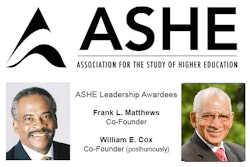LOS ANGELES – The college completion crusade, the Obama administration’s signature higher education issue, took center stage at one of the many panel discussions held Monday during the American Council on Education’s 94th Annual Meeting. This year’s meeting of the nation’s leading higher education association of college presidents and chancellors convened in Los Angeles over the weekend.
During the session titled “Productive Paths to Postsecondary Success,” panelists described serious challenges that community college and adult students face in persevering through more than one institution and earning four-year college degrees. Along with a host of other higher education associations, the American Council on Education (ACE) has engaged academic leaders to work to increase the number of Americans with postsecondary degrees.
Cherry Kay Smith, the assistant vice president of academic policy and assessment at Ivy Tech Community College in Indiana, said one major challenge at her institution is creating continuity for students seeking a liberal arts degree, such that those who earn two-year degrees can have a relatively seamless transition into one of the school’s four-year partner universities.
Smith and her team hope to overcome the challenge with a core education curriculum and standardized course numbers for all of the regional community colleges and their four-year partners, but she acknowledged that they still have a long way to go.
Smith noted that “a liberal arts degree that transfers to a four-year partner is very challenging in promoting completion.”
Dr. Paula Myrick Short, vice chancellor for academic affairs at the Tennessee Board of Regents, echoed Smith’s sentiments, adding that Tennessee’s recently implemented Tennessee Transfer Pathway was designed to create smooth paths for students who want to move from two-year schools to four-year colleges.
Under the relatively new policy, a student completing courses at any of the state’s 13 community colleges will be guaranteed admission to any of its six universities and three UT campuses. Short hopes that, by making “the students feel like they have a path,” the policy will boost Tennessee’s completion numbers.





















